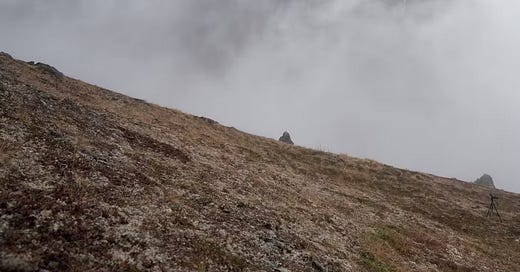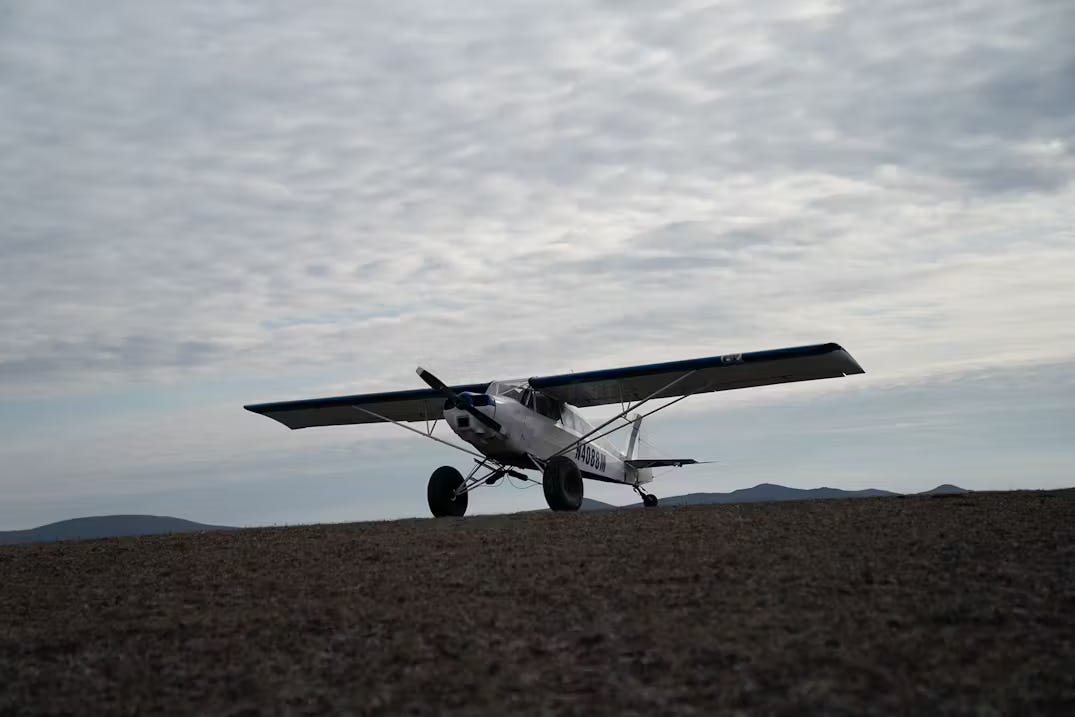The Case for Doing Hard Sh*t
Why doing hard things is necessary for health and fulfillment today.
Post summary
The headline says it all: we’re unpacking why you should on challenges this year.
We’ll cover:
What a month in the Arctic taught me about the value of doing hard things.
The state of modern comfort and how it presents a conundrum.
Why you’re wired to do hard things.
Housekeeping
🚨 The Two Percent New Year Challenge started today. Here’s the first challenge.
Don’t go comfortably into 2025—join us. You’ll get a new challenge delivered in the chat every weekday. Become a Member to join:
Thanks to our partners:
GOREWEAR: Maker of cutting-edge, science-backed endurance apparel that performs no matter what nature throws at you. Their gear has the official “Have Fun, Don’t Die” seal of approval. Check out the Concurve Jacket.
GORUCK: Maker of the best rucking gear (not stuff). Check out the Rucker 4.0 or GR1.
Use code EASTER for 30% off GOREWEAR and 10% off GORUCK.
Audio/podcast version
The post
A handful of years ago, I found myself standing on a windy tarmac 20 miles above the Arctic circle, staring at a plane that was about the size of a Snickers bar. I was with Donnie Vincent and William Altman, friends who are backcountry hunters and filmmakers.
We planned to spend the next month trudging hundreds of miles across the Arctic.
Before the pilot returned to pick us up 33 days later, we’d encounter subzero temperatures, hurricane-force winds, white-out storms, massive grizzlies, vicious badgers, raging glacial rivers, and more … the horrors were not to be denied.
This was nothing like my safe, comfortable life at home. But that was the point.
We’ve engineered the world for comfort and ease. Most people rarely step outside of their comfort zones these days—we’re living progressively soft, sterile, temperature-controlled, overfed, under-challenged, safety-netted lives1. And it’s slowly limiting the degree to which we experience our, as the poet Mary Oliver put it, “one wild and precious life.”
But a growing body of evidence shows that people are at their best—physically harder, mentally tougher, and spiritually sounder—after doing hard sh*t. I’m talking about pushing back against our world of ease and comfort and actively seeking occasional hardship.
These challenges could be as extreme as my trek across the rugged world of the Arctic. Or they could be as simple as the wide range of challenges you’ll get every weekday this month if you participate in the Two Percent New Year Challenge.
The comfort conundrum
For all of time, humans experienced discomfort daily. We had to do hard things to survive.
We were constantly exposed to the elements. It was often too cold, too hot, too windy, or too rainy out. The only escape from the weather required hard physical work, such as constructing a shelter or escaping into a cave.
We faced hunger often. Early humans didn’t have an abundance of food, and the food we did have was bland, boring, and light on calories. Finding this food required walking miles to find it or going on epic and challenging hunts.
Survival required physical effort. Lots of it. Our ancestors were about 14 times more active than we are today and were constantly walking, carrying, lifting, and more.
When we weren’t active, we experienced long stretches of unstimulated downtime. We had to get creative and find something productive to do with our boredom.
Comfort and ease aren’t inherently bad. In fact, humans are wired to seek it.
We instinctually default to safety, shelter, warmth, extra food, stimulation, and minimal effort. And that drive throughout nearly all of human history has been beneficial because it pushed us to do tasks necessary to survive. In an uncomfortable world, seeking comfort allows you to live on and spread your DNA.
Our modern problem is that our environments have changed, but our wiring hasn’t.
Our drive for constant comfort and ease backfires in our world of climate control, desk jobs, delivery food, screens, couches, cars, and more. We still default to ease even when it can hurt us in the long run.
Do hard things: You’re wired for it
Want to improve your life today? Do hard things. It worked for your ancestors, and it still works today.
Experiencing some of the same discomforts our ancestors faced can protect us from our most pressing physical and psychological problems. For example, problems like obesity, heart disease, cancers, diabetes, depression, and anxiety, and even more fundamental issues like a lack of meaning and purpose.
Many of these issues, in fact, were non-existent until our world tipped into comfort. Our ancestors didn’t experience those problems because their lives required effort2.
My research shows that people are at their best—physically harder, mentally tougher, and spiritually sounder—after experiencing many of the same discomforts our early ancestors were exposed to every day.
We become the best version of ourselves when we do hard things.
The physical benefits are quite obvious, but it also changes our concept of self. I recently spoke to Dr. Thomas Zentall. The guy’s an old-school psychologist—he received his PhD at Berkeley in 1969 and has been doing pioneering work ever since.
He told me that humans evolved to get a greater psychological reward from doing more challenging things, possibly as an incentive for us to keep searching or hunting when our survival depended on finding food.
It worked for me. After my time in the Arctic, I was fitter and healthier than I’d ever been.
More importantly, I’d experienced a sea change in my perspective. I was harder to ruffle and less stressed. I was more productive and creative. I found joy in moments that once seemed ordinary. And I could fully appreciate just how amazing modern life is.
But I was also curious—why had thrusting myself into a world of discomfort created such profound change in my life?
To help unpack this question, I’ve met with researchers at Harvard, geneticists in Iceland, monks in Bhutan, psychiatrists in Baghdad, and many more fascinating people. I asked them all the same question: What happens when we exit our comfort zone? In other words, what are the upsides of doing hard shit?
The result is the Two Percent mindset: being willing to do the slightly harder thing that you know will give you a longer-term return on your health, fitness, mindset, and many other areas.
And so, a proposal: Do not go comfortably into 2025. Seize this year as an opportunity to get better.
And how do we do that? By doing some hard sh*t.
Have fun, don’t die, do hard sh*t.
-Michael
I’m not saying everyone everywhere is living a life of Grubhub delivery food eaten in a down feather bed. But I am saying, as a whole, the average comfort level of humans, especially in the developed world, is radically higher than it ever has been.
Of course, they faced many other problems that we’ve since vastly decreased. E.g., Many infectious diseases, infant and maternal mortality, predation, higher rates of violence, etc.






Great post Michael. I suggest that besides really tough single challenges, such as your hunting trip or burning the ships, consistency/discipline can be the toughest challenge of all, be it the 10,000 steps/day, the weekly three days at the gym, or getting your daily intake of protein.
Happy New Year everyone!